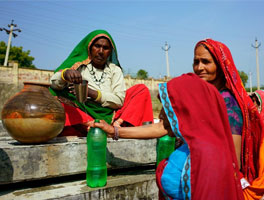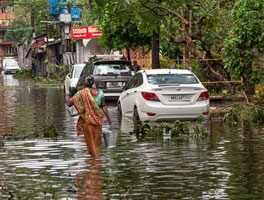 |
Dear readers,
Welcome to the Climate Weekly newsletter by the Centre for Science and Environment’s Climate Change programme and Down to Earth.
Climate politics, among other segments of political economy, has a particular affinity for equivocation. You can say a virtuous thing followed by several immoral things, and still emerge looking like a good faith actor. Take the example of the Group of Seven (G7) countries - Canada, France, Germany, Italy, Japan, United Kingdom and United States– some of the world’s richest countries, and biggest historical emitters of greenhouse gas emissions. At their annual summit, held this year in Hiroshima, Japan, they said a lot without saying much that was virtuous. Ananya Rao from CSE’s Climate Change team highlights some of the climate-relevant messages: they want all countries to aspire to the same net zero target of 2050 regardless of their developmental needs or historical emissions. They also want to keep using natural gas (in the form of LNG, because piped natural gas cannot be delivered by all producers) – a fossil fuel, because they are engaged in a war with Russia. This comes at a time when we need the rich world to rapidly switch to green energy and take the lead on reducing their emissions.
Elsewhere, a new study finds that extreme heat will put 600 million Indians at ‘greatest future risk’. This, when the WMO states that already, nearly 150,000 Indians have died in the past 51 years because of extreme weather, climate and water-related events.
An analysis of monsoon forecast data has suggested that India will experience a monsoon deficit of 25 millimetersthis year, when compared to the precipitation average for the 1996-2013 period.
And finally, do register for CSE’s Global Online Certificate Course on Demystifying Environment Data for Communication and Impact – more details can be found here.
|
|
 |
| |
 |
|
| |
 |
 |
| |
By - Avantika Goswami
Climate Change, CSE
|
| |
|
 |
|
|
| |
 |
|
| |
| EXTREME WEATHER TRACKER |
| |
Global heating to put 600 million Indians at ‘greatest future risk’: Study, 24 May 2023
|
 |
 |
|
|
| |
 |
|
| |
 |
 |
Nearly 150,000 Indians have died in the past 51 years because of extreme weather: WMO, 23 May 2023
|
|
|
| |
 |
|
| |
|
|
| |
 |
|
| |
|
|
| |
|
|
| |
|
|
| |
 |
|
| |
CLIMATE NEWS | SCIENCE| IMPACTS| POLITICS |
|
| |
 |
|
| |
|
|
| |
 |
|
| |
|
|
| |
 |
|
| |
|
|
| |
 |
|
| |
|
|
| |
 |
|
| |
|
|
| |
 |
|
| |
|
|
| |
 |
|
| |
|
|
| |
 |
|
| |
|
|
| |
 |
|
| |
|
|
| |
 |
|
| |
|
|
| |
 |
|
| |
|
|
| |
 |
|
| |
|
|
| |
 |
|
| |
|
|
| |
 |
|
| |
|
|
| |
 |
|
| |
| Data Centre |
|
Online Training |
| |
|
|
|
|
|
|
|
|
| |
|
|
| |
|
|
| |
|
|